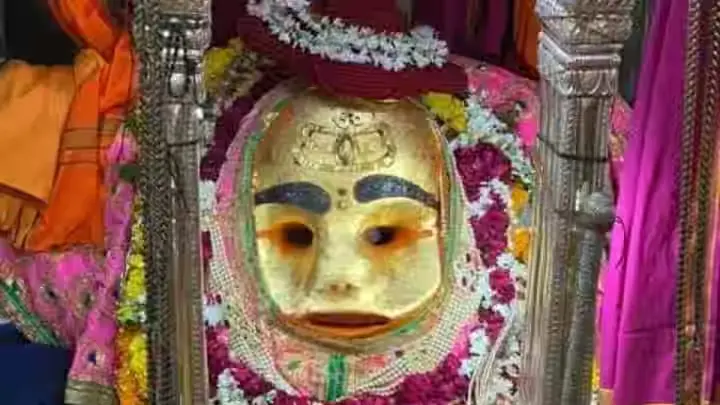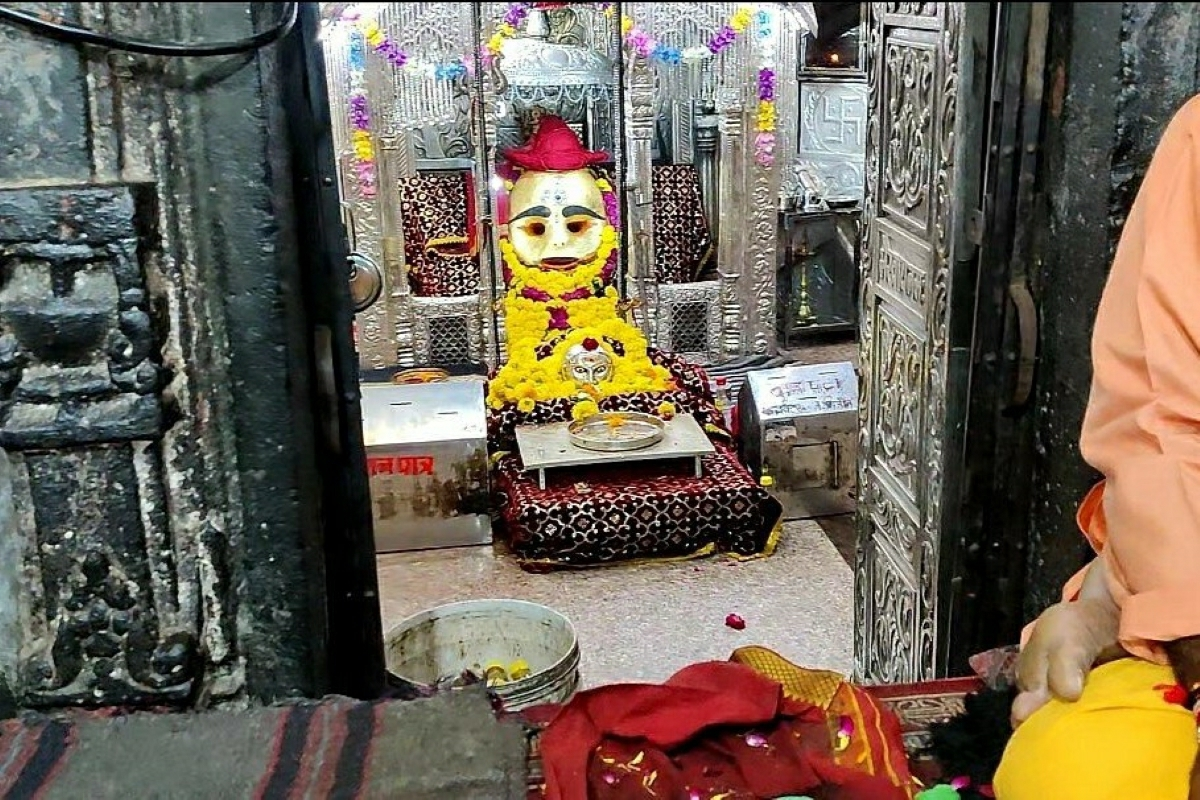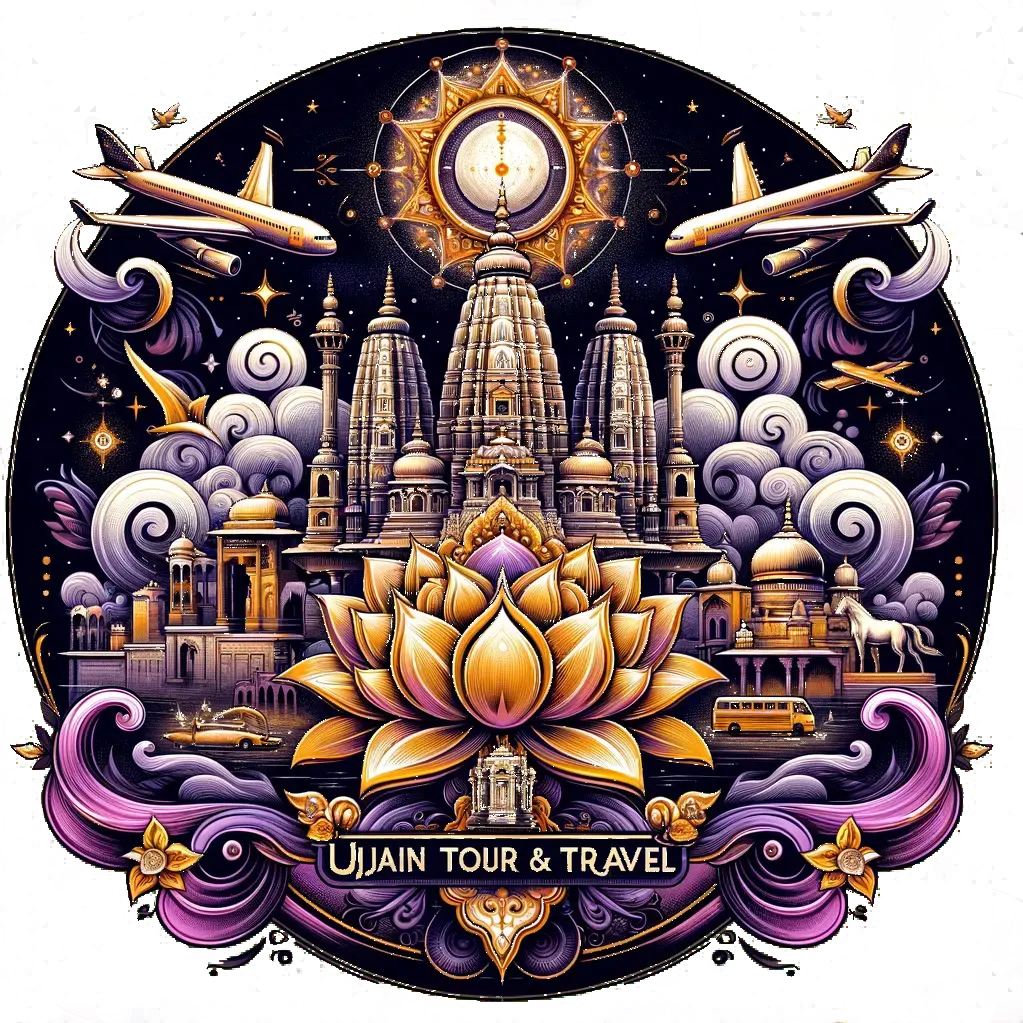Encountering the Bhairava: Unveiling the Fierce Form

Bhairava, the presiding deity of the Kal Bhairav Temple, presents a stark contrast to the more serene forms of Shiva typically worshiped in Hinduism. Depicted with a fearsome appearance, complete with fangs, three eyes, and a wrathful expression, Bhairava embodies Shiva’s destructive aspect, wielding the power to eliminate negativity and protect his devotees.
The idol in the Kal Bhairav Temple is particularly unique. Unlike most depictions of Bhairava standing, the Ujjain idol shows him seated, with one leg bent and the other extended. His hands hold various weapons, symbolizing his role as a fierce protector. Notably, while most Hindu deities are offered vegetarian prasad (offerings), Bhairava is traditionally offered alcohol.

A Tapestry of Legends: The Temple's Origins
The precise history of the Kal Bhairav Temple is cloaked in mystery. According to legend, the temple was born from the trident (trishul) of Goddess Parvati, Lord Shiva’s consort. The story tells of Parvati, angered by a demon’s misdeeds, manifesting Bhairava from her rage. Bhairava then decapitated the demon, and the demon’s head fell at the location where the Kal Bhairav Temple now stands.
Historical records suggest the temple has been around since at least the 8th century CE, with references to it found in the "Avanti Khanda" of the Skanda Purana, a revered Hindu text. Over time, the temple has undergone various additions and renovations, reflecting the architectural influences of different periods and rulers.
Rituals and Significance: Receiving Bhairava's Blessings
The Kal Bhairav Temple is of great importance to Hindus, especially those seeking:
- Protection: Bhairava is honored as a mighty protector, warding off evil and negativity. Devotees visit the temple for his blessings of safety and security.
- Obstacle Removal: Bhairava's intense energy is believed to help individuals overcome challenges and obstacles in life.
- Tantric Practices: The temple is a significant site for certain tantric traditions, a branch of Hinduism focused on awakening inner power.
- Auspicious Beginnings: Offering prayers at the Kal Bhairav Temple before starting a new venture is considered to bring good fortune and success.
The Unique Offering: Why Alcohol for Bhairava?
The tradition of offering alcohol to Bhairava is distinctive, with several symbolic interpretations:
- Spiritual Intoxication: Alcohol represents a state beyond physical limitations, allowing Bhairava to transcend worldly attachments and act decisively.
- Fiery Passion: Alcohol symbolizes fiery energy, mirroring Bhairava’s fierce nature and his ability to burn away negativity.
- Taming the Wrath: Some believe offering alcohol appeases Bhairava’s wrathful side, helping to harness his power for positive purposes.
- Tantric Significance: In Tantra, offerings like alcohol are used to awaken inner energies, aiding in spiritual liberation.
